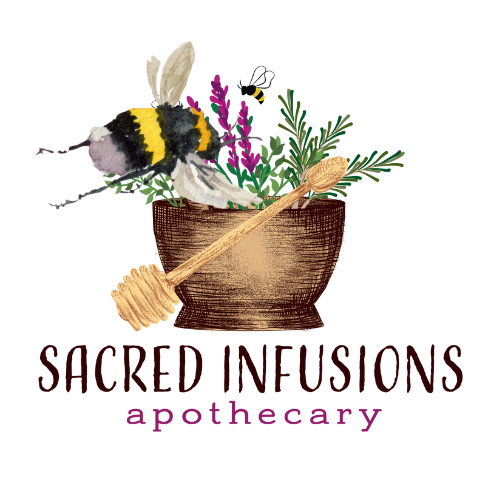Sacred Infusions Apothecary
8 ounce Cough Bee Gone
8 ounce Cough Bee Gone
Couldn't load pickup availability
Share
- gluten free
- soothes
- anti-inflammatory
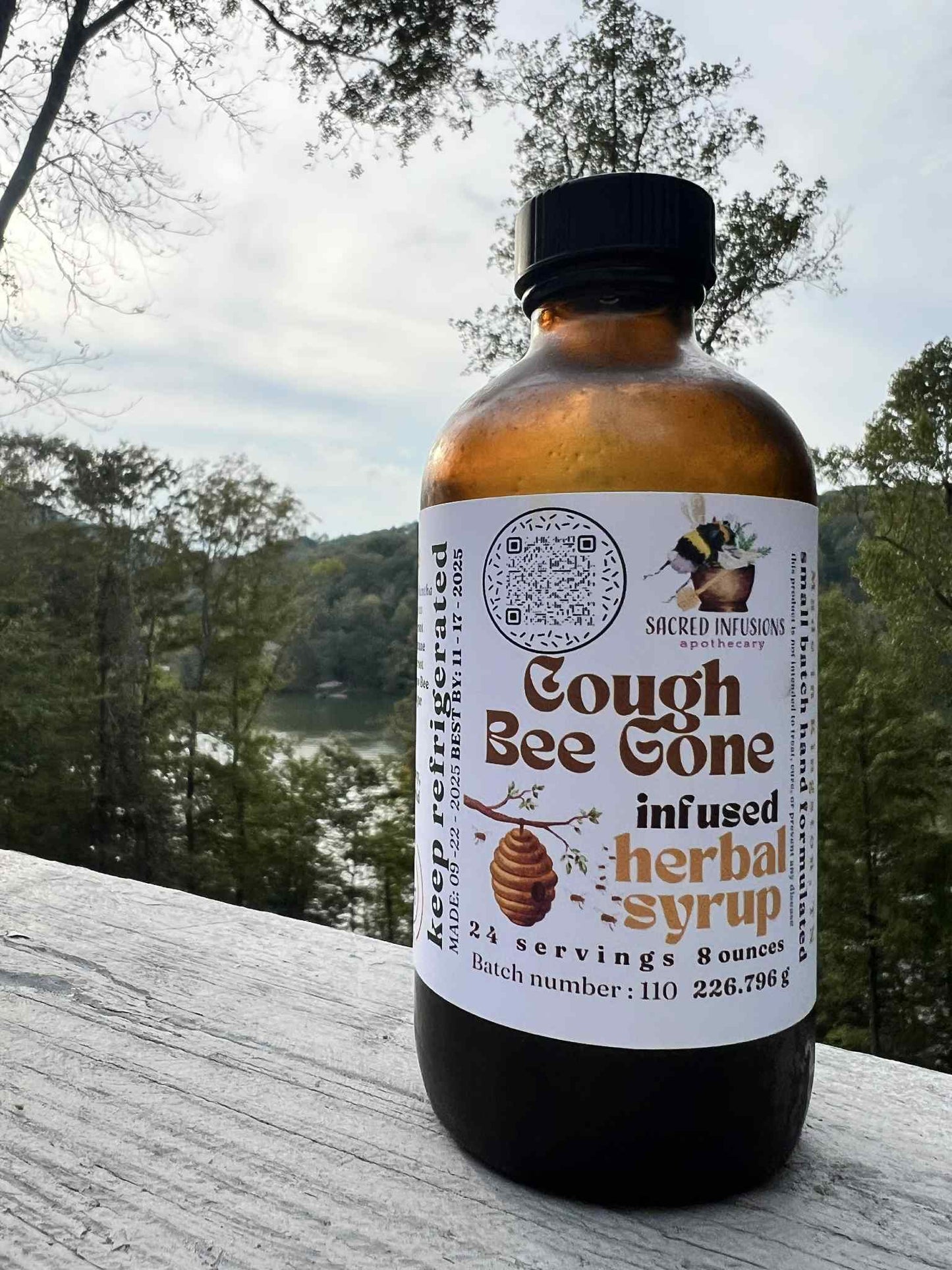
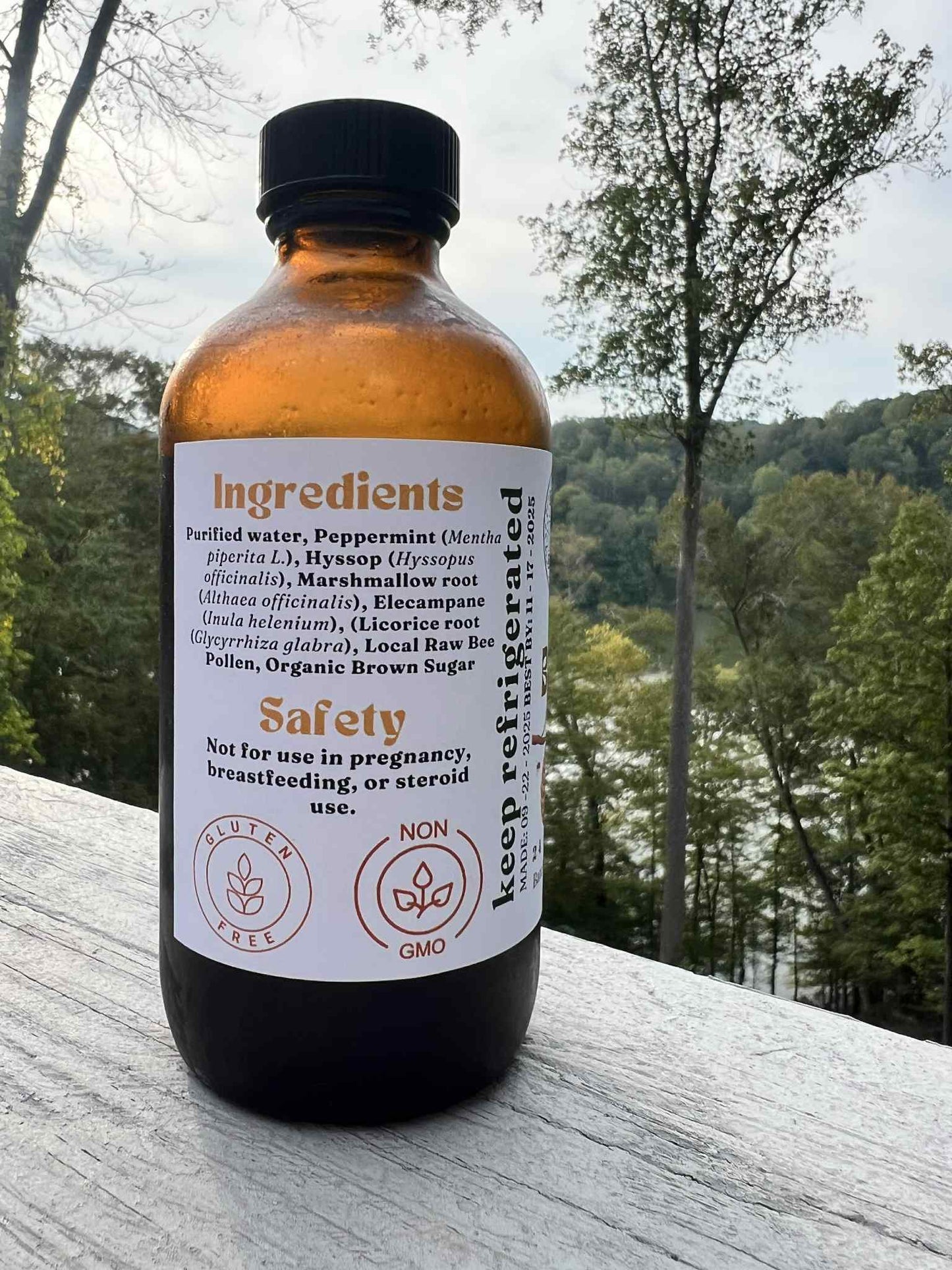
Cough Bee Gone
-

Ingredients
Purified water, Peppermint (Mentha piperita L.), Hyssop (Hyssopus officinalis), Marshmallow root (Althaea officinalis), Elecampane (Inula helenium), (Licorice root (Glycyrrhiza glabra), Local Raw Bee Pollen, Organic Brown Sugar
-
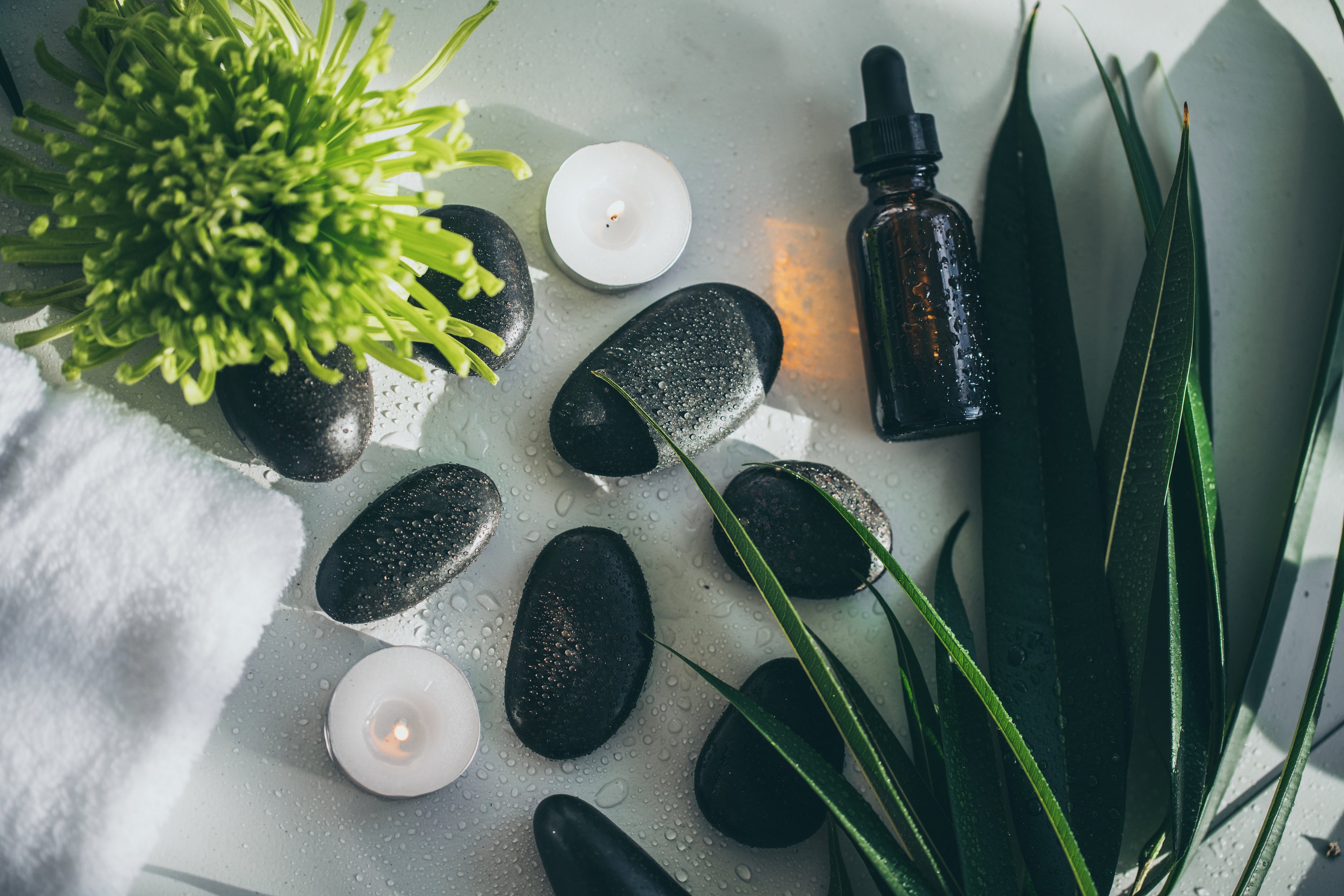
Suggested Dosage
Adults: 1 tbsp 2-3x daily.
Children 2 years old and up: 1 tsp 2-3x daily:
Babies 1 years old and up: ¼ tsp 2x daily. -

Contraindications
Allergies to bees
Blood thinners
Renal Failures
Steroid Use
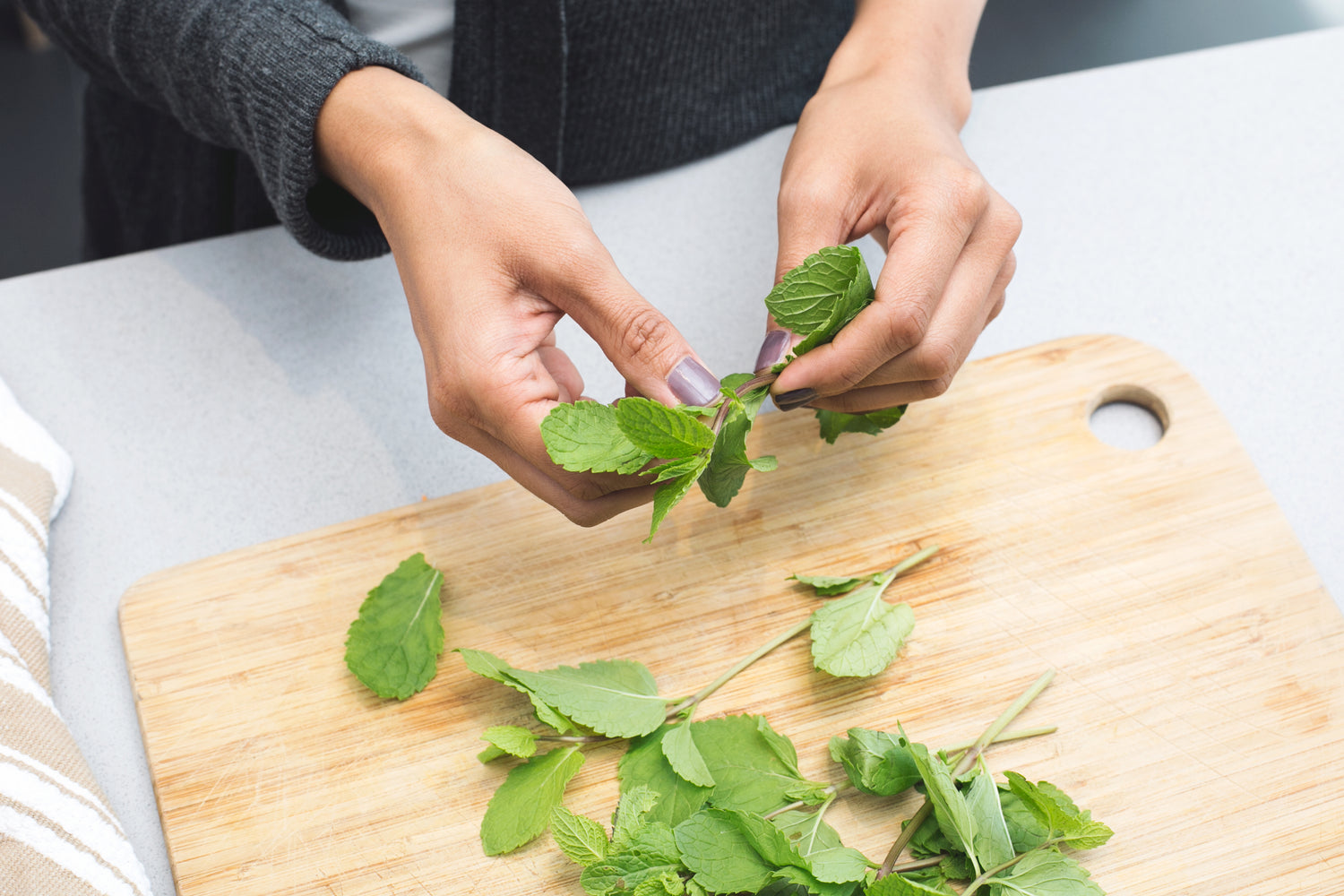
peppermint
relaxing
Peppermint has been known for its soothing properties for the last 3,500 years. There is evidence from Egyptian texts that date the medicinal use of peppermint 1500 years BCE. They specifically used it for digestive complaints. Ancient Romans documented it's use for indigestion and hiccups.
Peppermint is an essential herb because not only does it soothe irritated mucus membranes, but it also directly works on the digestive system. Having a healthy digestive system is key to homeostasis within the body, since 90% of our immune cells our located within the gut.
Peppermint's potential benefits for coughs:
Soothing effect: The compound menthol in peppermint creates a cooling sensation that can soothe a scratchy or irritated throat, which often contributes to a cough.
Decongestant properties: Menthol may act as a natural decongestant by soothing swollen mucous membranes in the nose and in our airways, making it easier to breathe.
Natural expectorant action: Peppermint may help loosen and thin mucous that has collected in the lungs, making it easier to clear through coughing.
Relaxing muscles: Some studies suggest that inhaling peppermint oil may help relax the bronchial muscles in the windpipe, which may support those with wheezing coughs.
Antimicrobial properties: Research suggests compounds in Peppermint have antimicrobial and antiviral properties, which may help fight off the pathogens causing the cough.
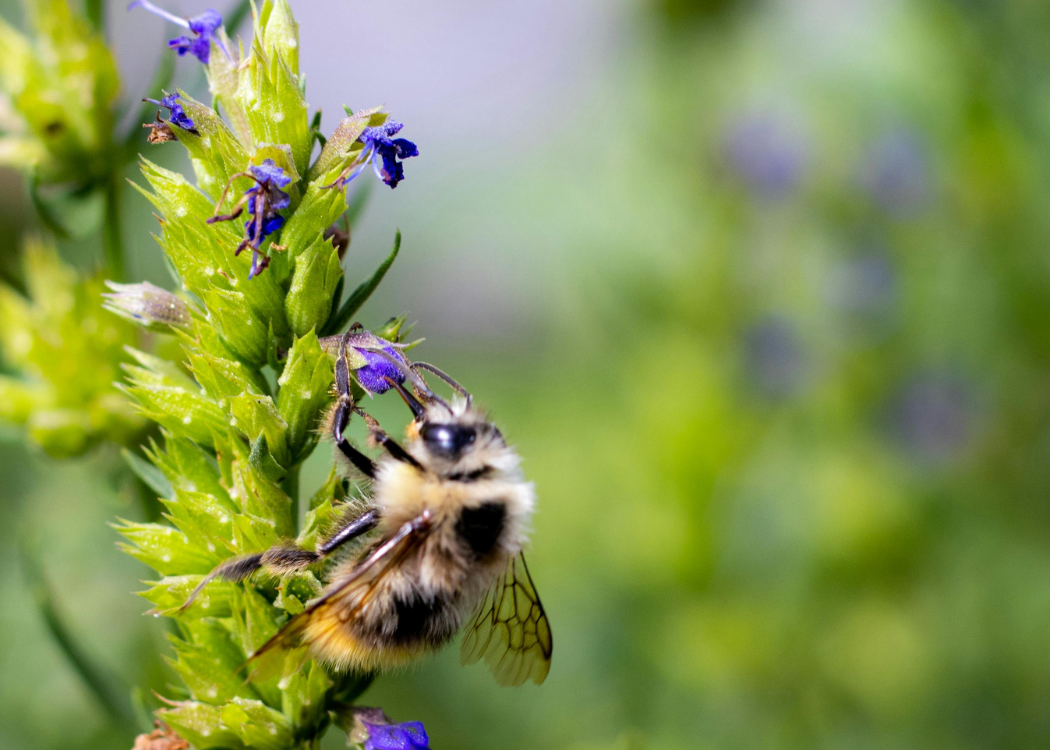
Hyssop
The history of Hyssop is rich, long, and biblical. Hippocrates dispensed this herb for ailments of the respiratory system, such as bronchitis and pleurisy. Roman physicians like Pliny the Elder also utilized it for a range of issues, including liver trouble, coughs, and bruised eyes.
Expectorant: Hyssop is believed to have expectorant properties, meaning it helps to thin and loosen mucus in the airways. This can make a cough more "productive," helping to clear congestion from the lungs and chest. Note: it is important not to use hyssop when dealing with a hot, dry cough. As it would irritate it further.
Antispasmodic: The herb may act as an antispasmodic, which may inhibit spasms in the respiratory system that trigger coughing fits.
Antimicrobial and Antiviral: Some studies suggest that hyssop is effective against bacteria and viruses, which could help the body fight off the underlying infection that is causing the cough.
Anti-inflammatory: Hyssop may help reduce inflammation in the airways, which is a common symptom of conditions like bronchitis and asthma that can lead to a cough.
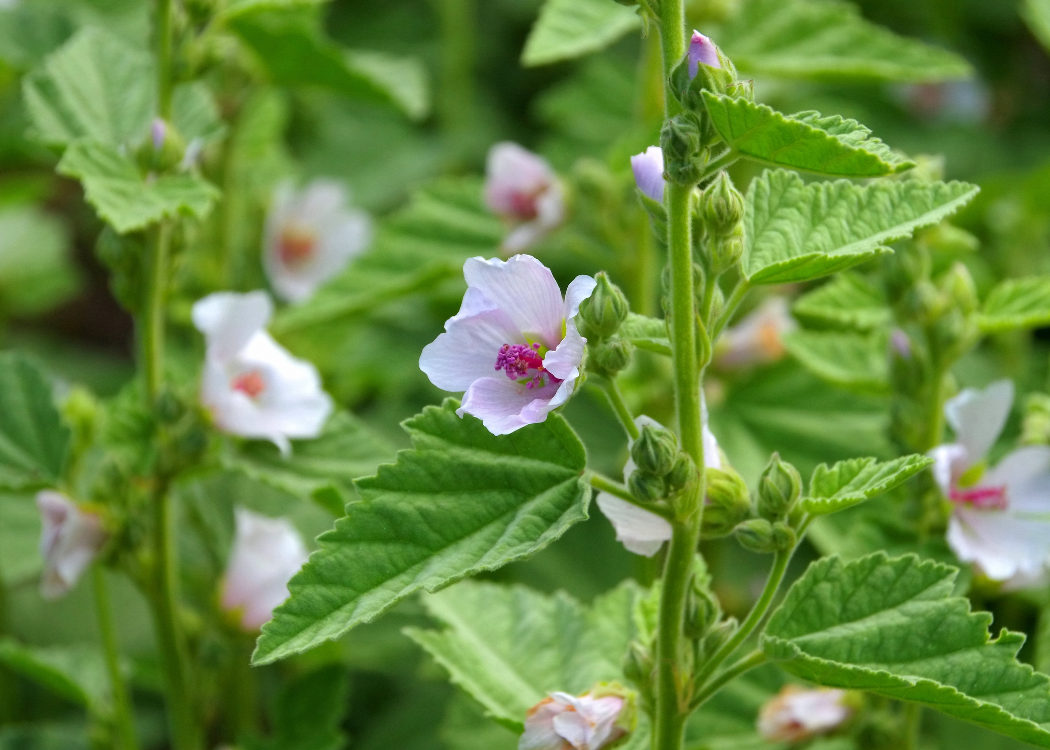
marshmallow root
Mucilage is often the primary medicinal benefit of marshmallow root. Mucilage is a sap-like, gelatinous substance. When mixed with water, this mucilage swells up and forms a slick, soothing gel. This soothing gel adds a protective layer that soothes hot, inflamed tissues.
Potential benefits of marshmallow root:
Promotes skin and wound healing: The mucilage substance from marshmallow root has been used for centuries to treat skin and wound conditions.
Soothes Dry Coughs and Sore Throats: Historically speaking this is the most well-known use of marshmallow root. The mucilage coats the mucous membranes of the throat, which may reduce irritation and provide a protective film that soothes a dry, irritated, or "scratchy" cough.
Soothes Respiratory Inflammation: Beyond just soothing, the mucilage may also help to reduce inflammation in the respiratory tract. This can be beneficial for conditions like bronchitis, which often involve inflammation and a persistent cough.
Antimicrobial, and anti-inflammatory properties: The mucilage and polysaccharides have shown in research to produce antimicrobial and anti-inflammatory effects. This research is specific to gram-positive bacteria, with more research needed for gram-negative bacteria.
Aids Digestive Health: The same soothing properties that help the throat can also benefit the digestive tract. Marshmallow root is used to calm irritation and inflammation associated with issues like gastritis, stomach ulcers, and inflammatory bowel disease. It can also help with both constipation and diarrhea by normalizing intestinal function.
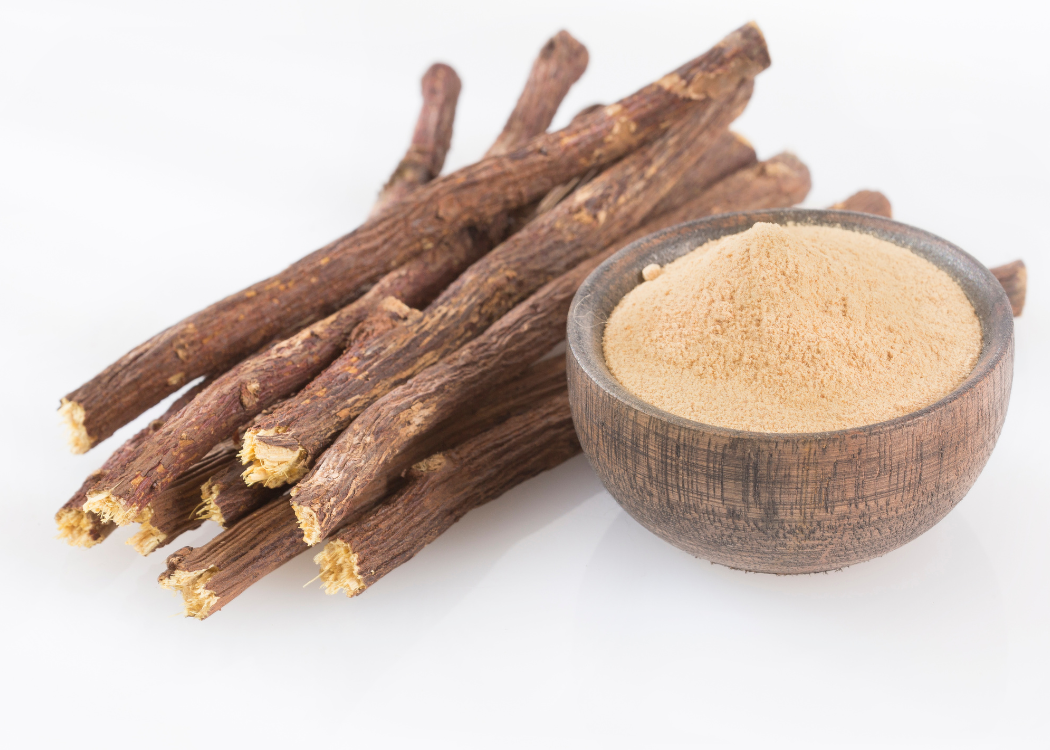
licorice root
Licorice root is rich in history that is important to bring to our attention. This plant has been used medicinally for over 5,000 years, and was so prized it was found in King Tut's Tomb. Today, licorice is cultivated commercially in Italy, Spain, China, and other parts of the world. My favorite Licorice comes from my backyard, or from Italy. There is something unique about the soil in the Calabria's region, that I believe adds an extra flare to this plant's taste.
Potential benefits of licorice root:
Licorice can have corticosteroid-like effects because its active component, glycyrrhizin, which may inhibit an enzyme that breaks down cortisol, leading to higher cortisol levels and related mineralocorticoid effects like high blood pressure, water retention, and low potassium levels. This can mimic the side effects of corticosteroids and is particularly risky for people taking corticosteroids or other medications that also affect mineralocorticoid receptors.
Respiratory Health: The demulcent and expectorant properties of licorice root make it a common ingredient in remedies for coughs and sore throats.
- Cough and Sore Throat: The soothing action of licorice can coat the throat and reduce irritation, while its expectorant properties help to loosen and clear mucus from the airways.
- Bronchitis and Asthma: Some research suggests that the anti-inflammatory properties of glycyrrhizin may help soothe symptoms of asthma and other respiratory conditions.
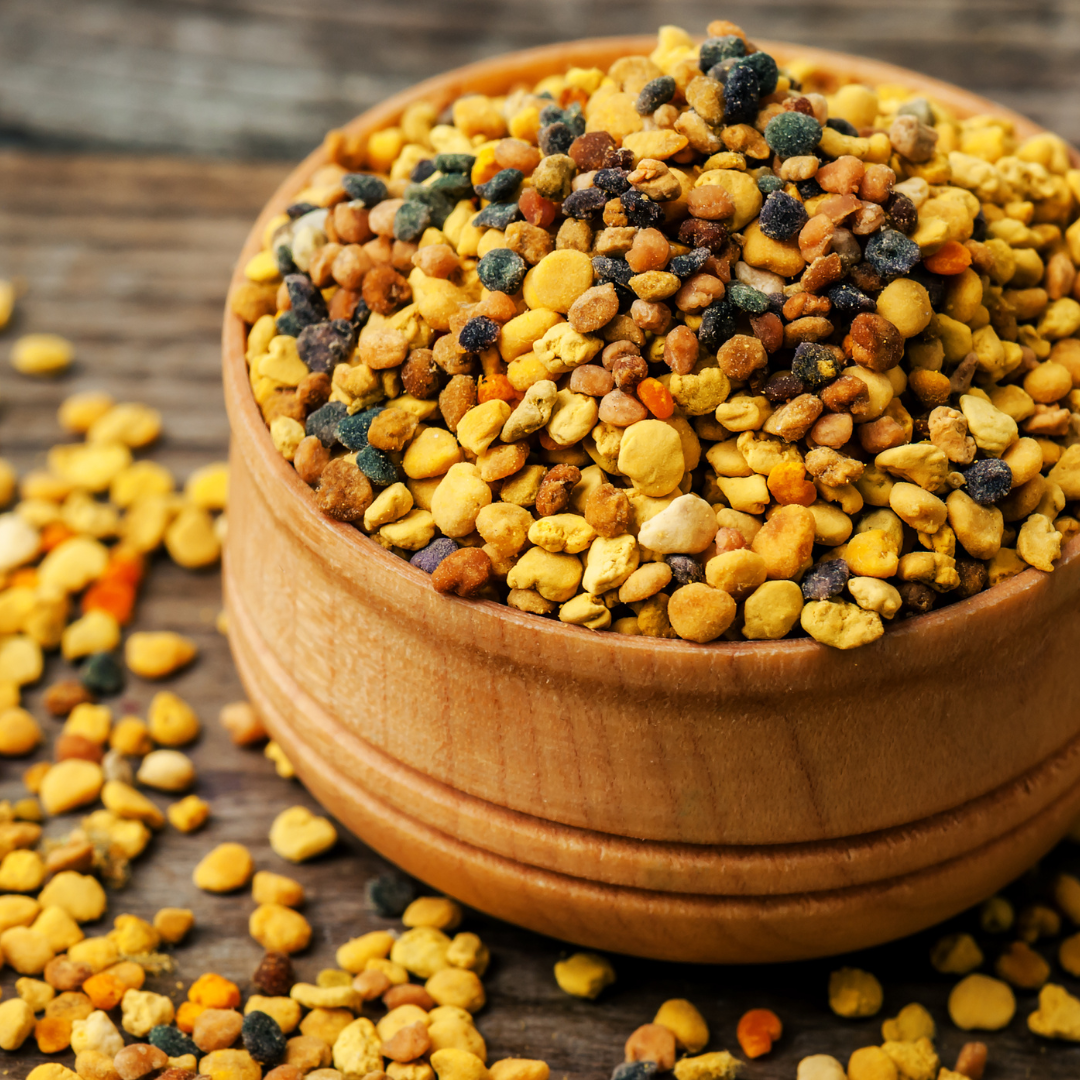
bee pollen
The Real Thing From The Bee.
Bee pollen is extremely nutritious and bioactive. Meaning it contains numerous minerals that are easily absorbed in the body. The mineral content can vary depending on the species of flower the bee was collecting from.
Bee pollen was added to this formula because it is a nutritional powerhouse, containing over 250 active compounds that support and strengthen the immune system and gut microbiome. Lets take a look at just a few of the benefits of bee pollen.
- Vitamins: A, C, D, E, and B vitamins.
- Minerals: Zinc, calcium, magnesium, potassium, and iron.
- Amino Acids: Essential building blocks for proteins.
- Antioxidants: Flavonoids, carotenoids, and glutathione.
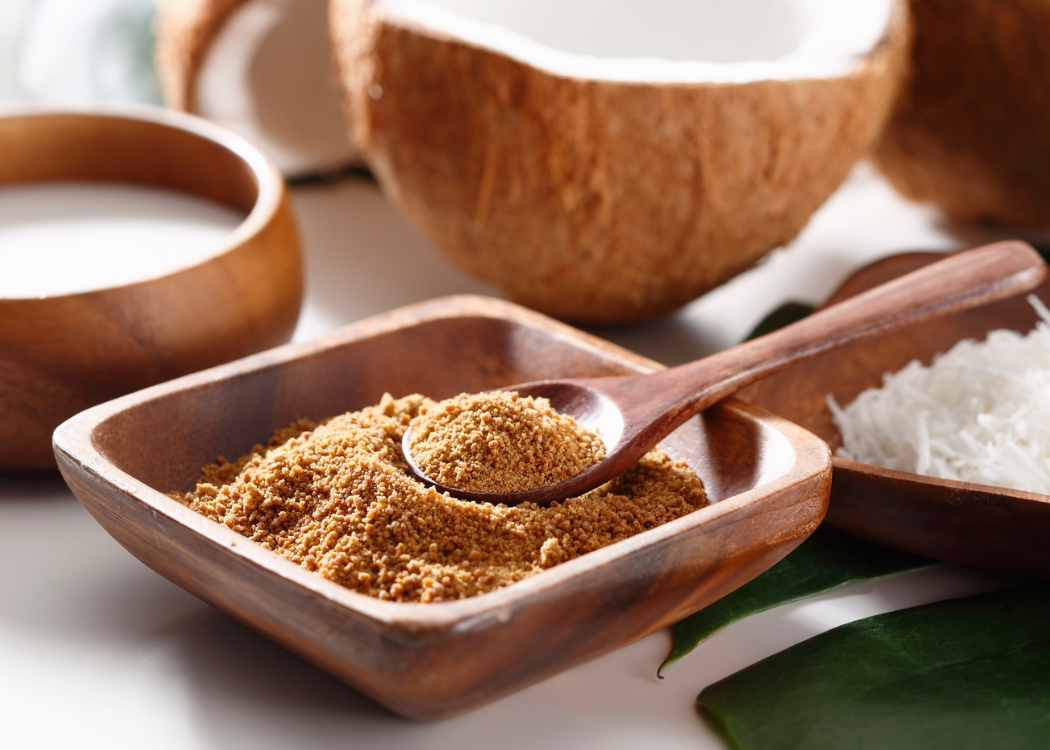
vodka
Water, Sugar, Vodka.
Herbal infused syrups are formulated with water, sugar, and traces of organic vodka.
Syrups have a longer shelf life due to the amount of sugar used, thus creating a stable environment, for at least 6-8 weeks.
The herbalist adds a very small amount of vodka to each bottle, which extends the shelf life of the syrup.
Secrets From The Garden
View all-
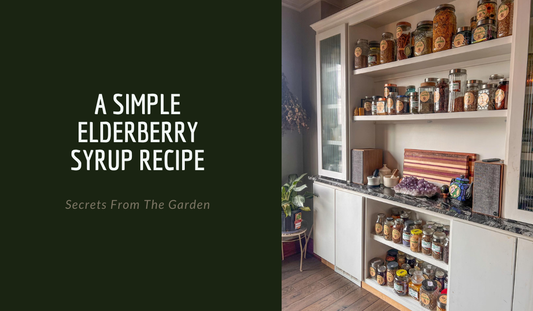
Elderberry Syrup Recipe
A simple recipe. This elderberry syrup is simple and easy to follow. Be sure to follow the pro-tip about honey. Its crucial to use honey properly, so we don't destroy...
Elderberry Syrup Recipe
A simple recipe. This elderberry syrup is simple and easy to follow. Be sure to follow the pro-tip about honey. Its crucial to use honey properly, so we don't destroy...
-
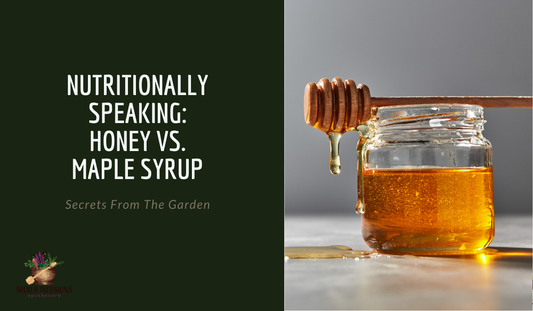
Nutritionally Speaking: Honey VS. Maple Syrup
Short, but sweet. This blog post will be a bit different. Just as the bees do, we are going to keep this short and sweet. Directly to the point....
Nutritionally Speaking: Honey VS. Maple Syrup
Short, but sweet. This blog post will be a bit different. Just as the bees do, we are going to keep this short and sweet. Directly to the point....
-
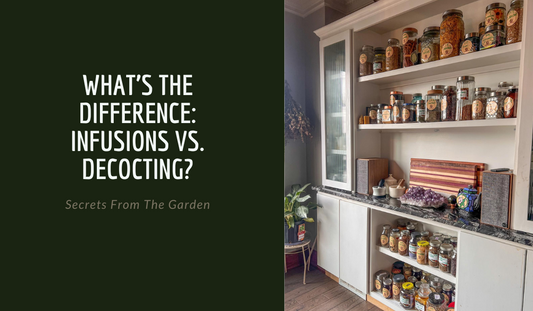
What's The Difference: Infusions VS. Decocting?
Spill The Tea: Steeping and decocting are both methods of extracting flavors, nutrients, and medicinal properties from plants, but they differ significantly in the type of plant material used and...
What's The Difference: Infusions VS. Decocting?
Spill The Tea: Steeping and decocting are both methods of extracting flavors, nutrients, and medicinal properties from plants, but they differ significantly in the type of plant material used and...
